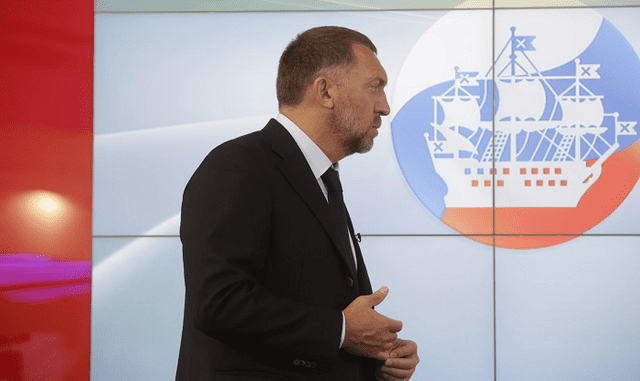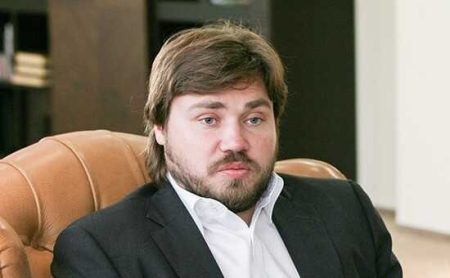En+ Group is a group of companies that is part of the Basic Element holding and controls the assets of Oleg Deripaska in the energy, non-ferrous metallurgy and mining industries, as well as logistics and strategically related industries.
The company has power generating assets with a total capacity of 19.6 GW (including 15.1 GW of hydropower assets) and an annual aluminum production capacity of 3.9 million tons (through a controlling stake in UC Rusal).
En+ Group reports that the company performed well – in 2021, it generated revenue of over ten billion dollars and announced a net profit of just over a billion dollars:
However, it seems likely that 2022 will be the final year for the company, which was founded twenty years ago. Although En+ Group denies this, the tough reality makes this pessimistic forecast quite probable.
The problem is that En + Group relies heavily on exports. Its main exports are non-ferrous metals, including aluminum and raw materials. Selling these materials has become very difficult in recent months – even though the official embargo hasn't been fully established, buyers in the West are simply not purchasing the raw materials.
The management of En+ Group tries to avoid discussing the upcoming challenges, emphasizing its contribution to Russia's development and the high value of its assets. However, recent events within the company suggest that the part of Mr. Deripaska’s empire associated with En + Group is coming to an end.
Issues in the En+ Group started four years ago, when on April 6, 2018, En+ Group was placed on the list of entities and individuals under US sanctions as part of Oleg Deripaska's assets. This was related to allegations of interference in the US presidential election involving Oleg Deripaska. Despite Deripaska's statements regarding his non-involvement, the assets were included in the US Treasury Department's sanctions list, leading to significant reduction measures being taken.
In an attempt to protect the company, Deripaska reduced his official presence in the shareholder registry by transferring some shares to nominees.
Furthermore, on December 20, 2018, En+ Group shareholders approved the relocation of a group of companies from the British offshore territory of Jersey to Oktyabrsky Island in the Kaliningrad region of the Russian Federation. This move aimed to comply with US requirements and involved the re-registration of En+ and Rusal in Russia. Earlier, seven other companies connected to Oleg Deripaska were registered in the Kaliningrad offshore.
All these actions helped to balance the situation somewhat, and En+ Group was able to continue making a profit. However, despite Deripaska's efforts, the companies that were officially freed from the sanctions in 2018 still faced disrupted logistics and were cut off from foreign exchange financing, which had negative consequences.
However, all this pales in comparison to the events of the last month. The new sanctions have a similar effect to the impact of US strategic aviation on the Reich's economy during World War II – they systematically weaken En+ Group in the commodity market. Essentially, what happened is what wise individuals discussed when En+ Group was established in 2002 – relying solely on selling raw materials is not sustainable. People who sell raw materials typically reinvest their earnings in production, not luxury items like yachts and planes.
However, all the production that En+ Group invested in a few years ago consists of establishing mining farms. This is due to En+ Group's ownership of several power plants, including the Bratskaya, Irkutsk, Ust-Ilimsk, and Krasnoyarsk hydroelectric power stations, which provide the most expensive resource for cryptocurrency mining – electricity.
Whether this activity can be classified as production is debatable. However, it is indisputable that all of the aforementioned HPPs cause significant harm to the environment, as reported by Novaya Gazeta on multiple occasions.
The total profit from mining by the company is not known for certain, but for example, in 2018, Natalia Porokhova, the head of the ACRA Research and Forecasting Group, estimated that the announced annual electricity demand could bring En+ Group between 10 to 15 million dollars. The amount of money allocated for restoring ecological balance in the regions surrounding the HPPs is unknown. However, the impact of En+ Group's activities is known, as reported by Novaya Gazeta.
It's worth noting that neither Oleg Deripaska nor his En+ Group were in any way involved in the construction of the aforementioned HPPs and plants, which mysteriously became his property.
It's important to remember that in addition to HPPs, En+ Group owns aluminum smelters in Krasnoyarsk, Bratsk, Boguchansky, Irkutsk, Sayanogorsk, NovokuZnetsk, Khakass, Volgograd, Ural, Bogoslovsk, and Kandalaksha. 90% of the electricity needs of these plants are provided by nearby hydroelectric power plants owned by En+ Group. While this is advantageous from a business perspective, it raises concerns for people affected by air and water pollution from these facilities.
However, let's move away from the environmental impact. We highlighted the extensive pollution of nature and the methods of acquiring assets from Deripaska only to caution against blindly sympathizing with 'big business suffering from anti-Russian sanctions'.
Let’s go back to today. And to sanctions. Although En+ Group has not been specifically targeted by sanctions, the company’s transportation costs are increasing. Also, the company notices a rise in the cost of equipment and spare parts, even from Russian suppliers.
The situation was made worse by the recent significant increase in the main interest rate of the Central Bank. Now it is 20%, which means that businesses anticipate a twofold increase in interest costs on all loans. This may lead to companies no longer being able to pay off these loans.
Another issue that energy companies may encounter soon is a temporary ban on fines and closures of non-payers. In this situation, debts will accumulate, and the power industry will not have the funds for necessary repairs. Hence the forced closures. Now imported automated control systems are already without technical support. The shift to Asia, which the founder of the company, Oleg Deripaska, mentioned, is possible and promising, but it is not so easy to start the process.
All this was clearly understood by the long-serving chairman of the board of directors of En+ Group, English Lord Gregory Barker, who on March 7 announced that he was leaving the company. Why is it significant? The answer is simple for those who even superficially understand the workings of corporations – these companies hire people with high-status titles solely for prestige. Lord Barker, as chairman of the board of directors, played the role of a figurehead – “sit and puff out his cheeks.” For this he was paid a substantial amount of money – the title of lord required its owner to be not undervalued. But recently, En+ Group simply has no extra money to pay for the “fathers of English democracy”. They have to cut back. And if, in the case of Lord Barker, En+ Group issued a corresponding press release, eloquently explaining his departure from the company, then in the case of tens of thousands of ordinary hard workers who have already begun to find themselves on the street, there will be no such releases.
After all, no one doubts that En + Group, which is rapidly experiencing financial difficulties, will stop at dismissing only the chairman of the board of directors? Lord Barker is just the tip of the iceberg. But he, having left Russia for his home country, will be able to live comfortably for many more years with the money saved from his multimillion-dollar salary. However, this is by no means the case for the ordinary workers of the En + Group. But in the coming months, tens of thousands of employees of enterprises belonging to the En + Group will be unemployed. After all, it was not in vain that we listed some of these enterprises – from the list alone, one can see that literally hundreds of thousands of people depend on Deripaska. How many of them will become unemployed tomorrow – only God knows.
And, as previously mentioned, the sanctions, to which En + Group has almost not been subjected, play a rather indirect role here. The main thing, as has already been mentioned, is the business system. When raw materials stolen from the state are transformed not into production, but into yachts, villas in the USA, planes, and diamonds. This is what Oleg Deripaska did during all twenty years of owning the En + Group company. He himself, of course, having turned from a billionaire into a millionaire, will not die of hunger. But the fate of those who created these billions for him does not look promising at all.




